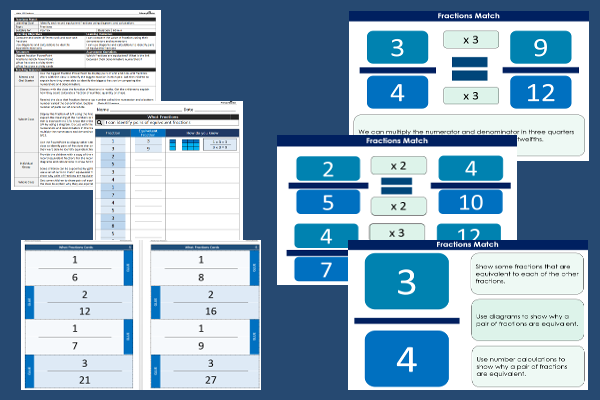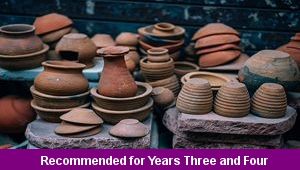Lesson One – Fractions Match

This maths teaching pack for Key Stage Two gets the children to identify and record pairs of equivalent unit and non-unit fractions using diagrams and calculations to model and compare their values.
The class can explain and illustrate how to convert fractions to use the same denominators to make it easier to identify and compare their matching fraction values.
Download this teaching pack including a lesson plan, classroom activities and an interactive presentation to teach the children to identify and record pairs of equivalent unit and non-unit fractions using diagrams and calculations to model and compare their values
Activities in this teaching pack include a worksheet to identify and record pairs of equivalent unit and non-unit fractions using diagrams and calculations and a set of cards to match pairs of equivalent unit and non-unit fractions using diagrams and calculations.
The interactive presentation gets the children to explore how to record pairs of equivalent unit and non-unit fractions using diagrams and calculations.
This lesson is part of a maths scheme of work to get the children to identify and illustrate how to change and convert the values of different fractions using equivalence, simplification and conversion between mixed and improper fractions. There are teaching activities for shared learning, differentiated worksheets to support independent learning and interactive presentations to introduce concepts and key skills.
-

Classic Animal Stories
Investigate the structure and content of classic works of fiction by significant authors with animals as the main characters
-

Cities, Towns and Villages
Research and present the history of a range of different buildings and people that are part of the local community using a school exhibition
-

Recycling
Research and present some of the benefits and disadvantages that can be produced when recycling different materials at home and in school
-

Viking Pots
Develop and refine a range of different art and design techniques when working with clay to make pots that represent Viking culture and traditions
